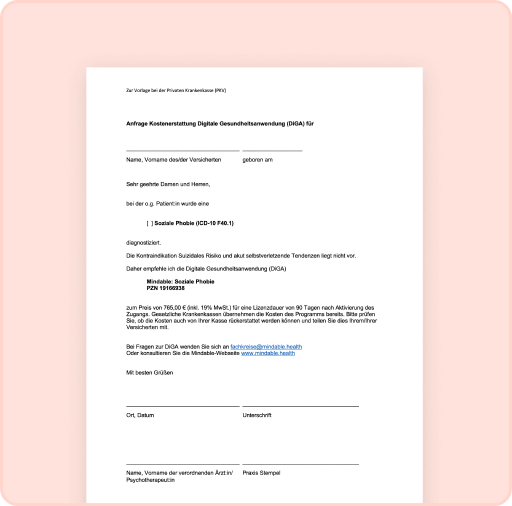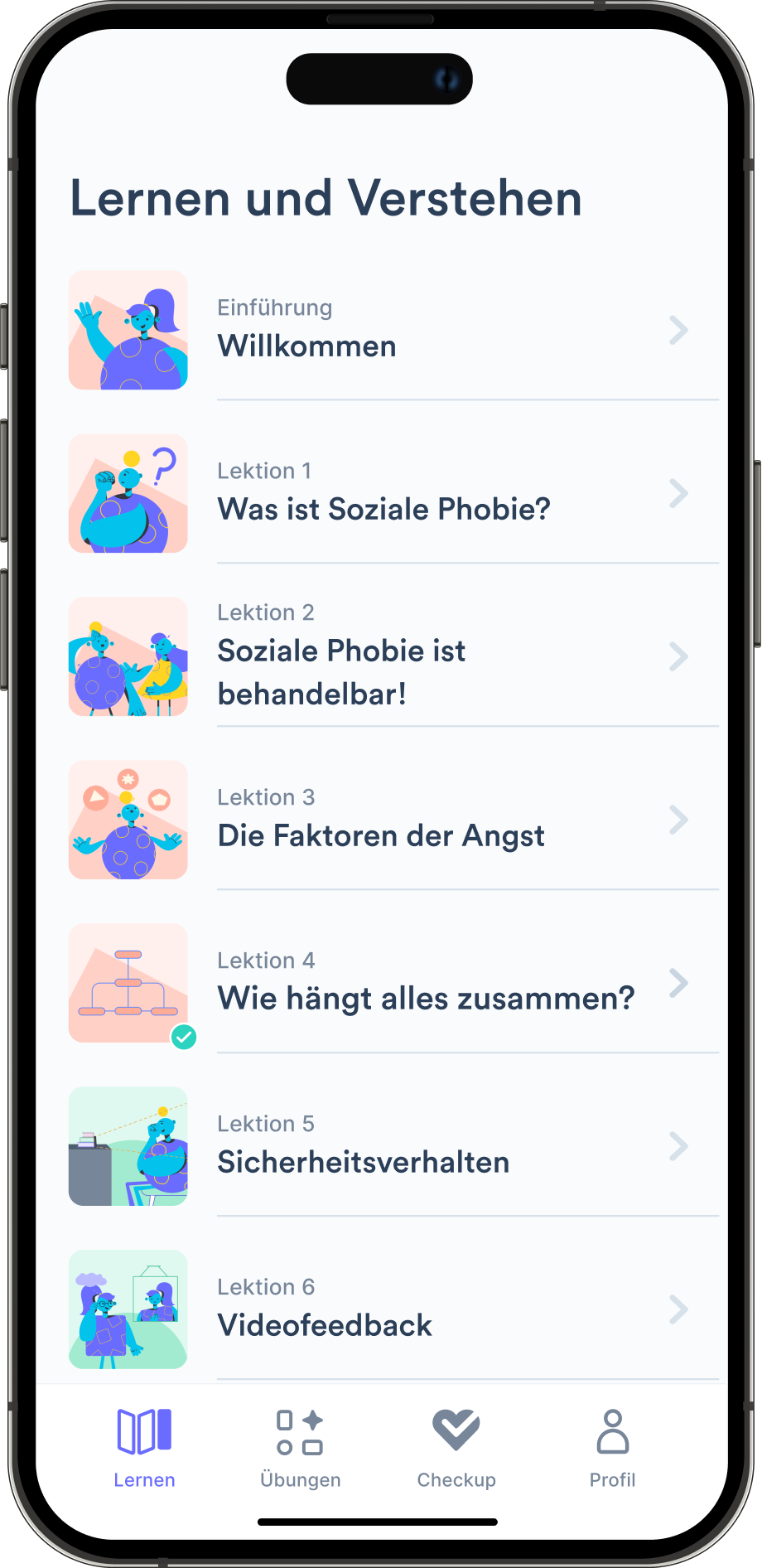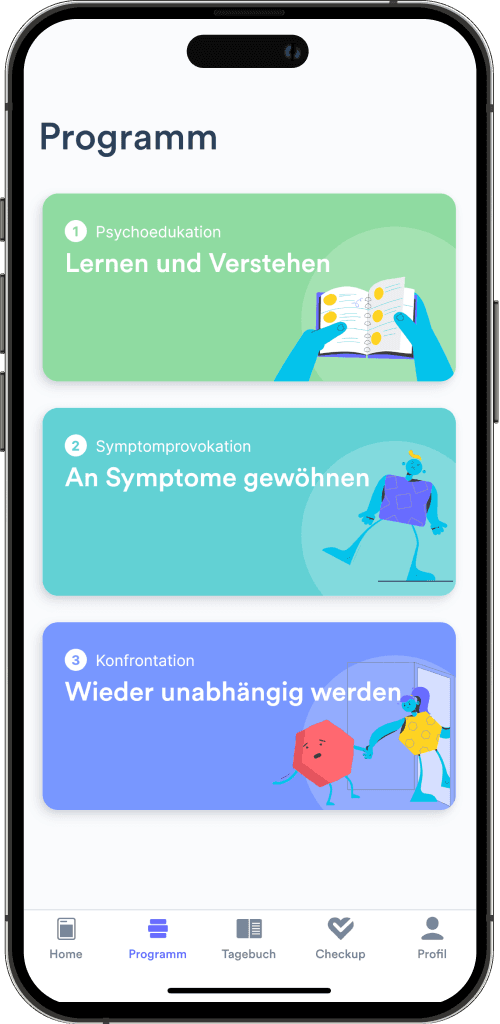Prescribing a DiGA – it’s that simple
Whether to bridge waiting times or as an adjunct to therapy: learn how and when you can prescribe Digital Health Applications (DiGA) such as Mindable.
Easily Prescribe with Form-16
How to Prescribe the Mindable Apps
Step 1
For prescribing DiGAs, Muster-16 prescriptions are used. You can search for “Mindable” or the PZN (see step 2) in your practice management system (PVS).

Don’t Want to Deal with Complicated PVS?
Order our pre-filled prescription pad here
Step 2
Print the prescription (Form 16) or label it as follows:
Digitale Gesundheitsanwendung
PZN 17454202
Mindable: Panik & Agoraphobie
Digitale Gesundheitsanwendung
PZN 19166938
Mindable: Soziale Phobie

Digitale Gesundheitsanwendung
PZN 19166938
Mindable: Soziale Phobie
Step 3
Your patient submits the prescription to the health insurance fund or via our prescription service and receives a 16-digit activation code within a few days. The app can then be used for 90 days.
Apps by Mindable
Manual-based DiGAs for anxiety disorders
Mindable Health offers DiGAs for the indications Social Phobia (F40.1) as well as Panic Disorder (F41.0) and Agoraphobia (F40.0) — developed with the authors of leading treatment manuals.
Simple by prescription
Who can prescribe DiGAs?
DiGAs are CE-marked medical devices that can be prescribed much like medicines. All licensed psychotherapists with statutory accreditation can prescribe DiGAs such as Mindable — as can all (specialist) physicians.
Use cases
When a prescription can make sense
Examples from practice
Referral by specialist
In anxiety disorders, patients often first present to general or specialist practices due to physical symptoms. After a suspected mental health diagnosis is made, a referral to a psychotherapist can be issued. Psychotherapy, however, is in most cases not immediately available.
Solution approach:
As immediately available digital helpers, DiGAs can provide initial support for patients in coping with their disorder. DiGAs can be prescribed on the basis of a suspected diagnosis. Through psychoeducation and initial exposure exercises, patients learn to better understand their condition.

The consultation ends, but no therapy slot is available
Patients often come to the psychotherapy consultation with obvious distress and a well-founded suspected diagnosis. Then the dilemma: the waiting list is full and free slots are months away. Many therapists report these frustrating moments: the need is clear, but no therapy can be offered.
Solution approach:
With a suspected diagnosis, a DiGA such as Mindable can already be prescribed during the consultation. This gives patients immediate, evidence-based digital support, e.g., psychoeducation or initial small exposure tasks.

When exposures fail and therapy stalls
The exposure is planned, the goal is defined. But in the next session it turns out the exercise wasn’t carried out. Between sessions, patients often lack structure, reminders, or motivation. The result can be stagnation in therapy.
Solution approach:
Mindable’s DiGAs can provide targeted support in such cases. Clear exercise instructions, motivating prompts, and the ability to document progress make it easier for many patients to implement planned exposures in everyday life.

Direct and Digital
Helpful Documents
Templates, explanations, and diagnostic support directly and digitally available for download
Mindable: Panic & Agoraphobia
Form-16 Template Explained (German)
Download document
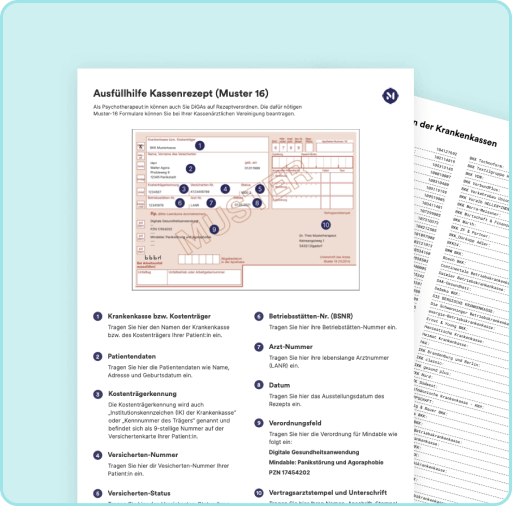
Mindable: Social Phobia
Form-16 Template Explained (German)
Download document
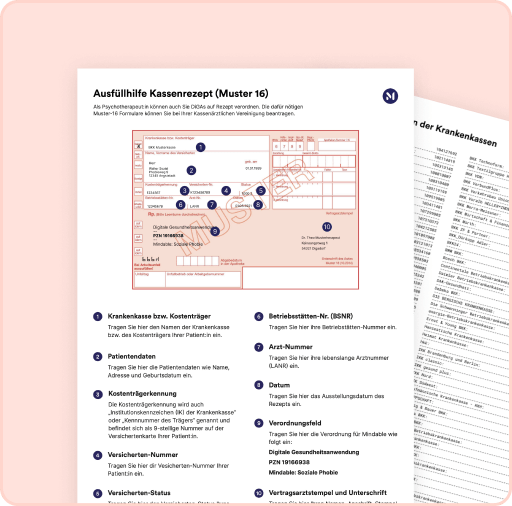
Mindable: Panic & Agoraphobia
Diagnosis Guide (German)
Download document
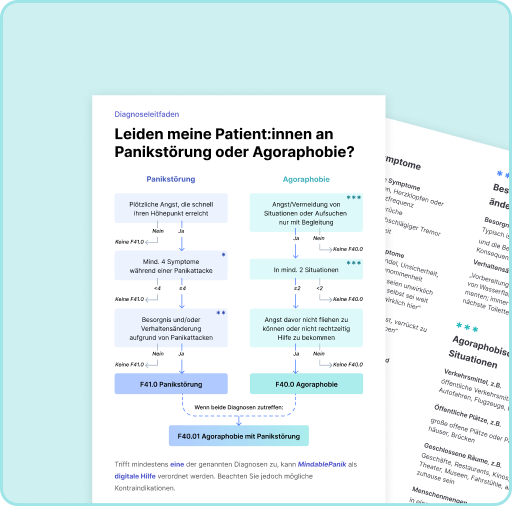
Mindable: Social Phobia
Diagnosis Guide (German)
Download document
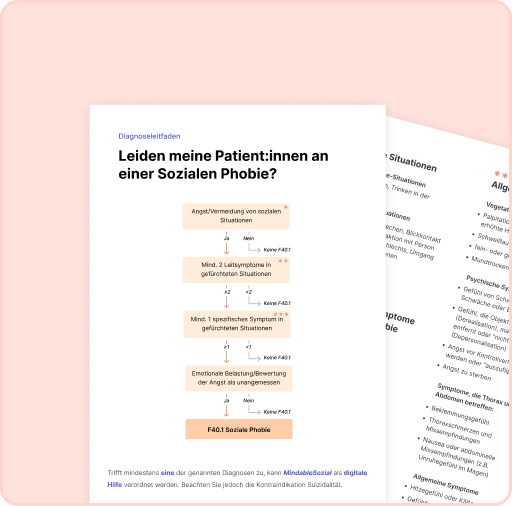
Mindable: Panic & Agoraphobia
GKV Template (German)
Confirmation of indication
Download document
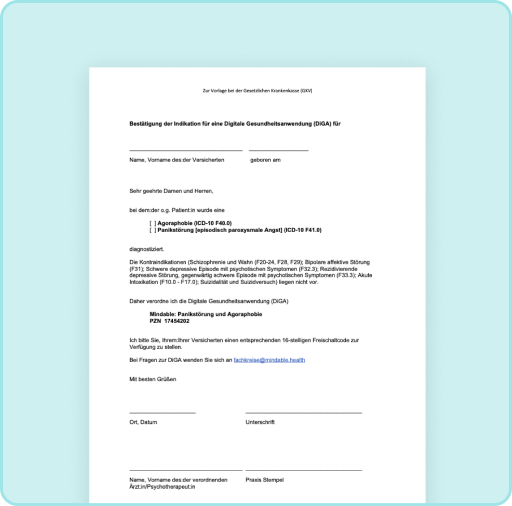
Mindable: Social Phobia
GKV Template (German)
Confirmation of indication
Download document
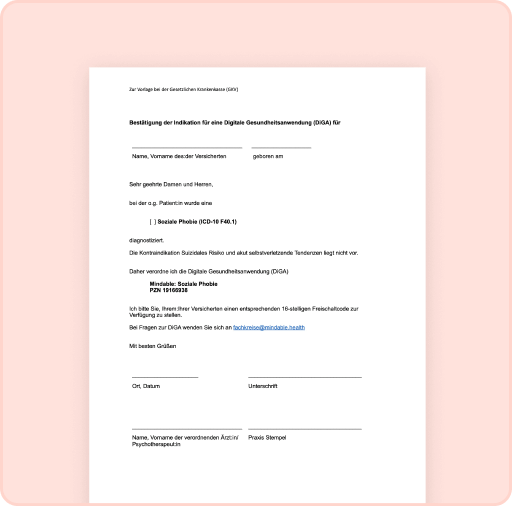
Mindable: Panic & Agoraphobia
PKV Template (German)
Confirmation of indication
Download document
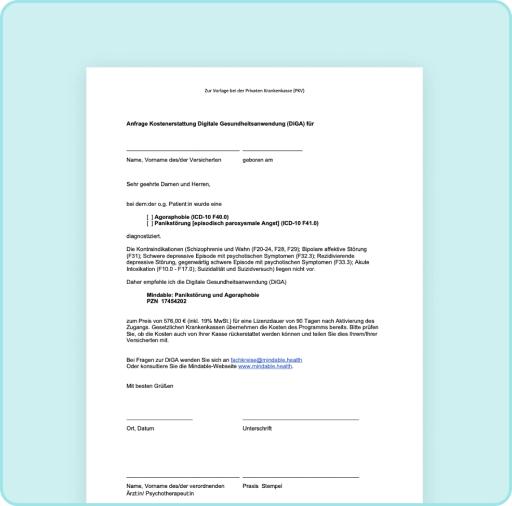
Mindable: Social Phobia
PKV Template (German)
Confirmation of indication
Download document
